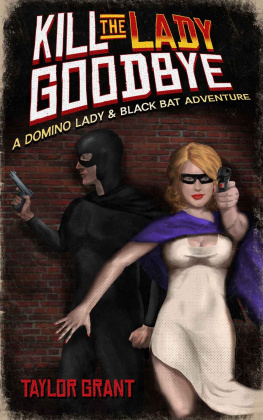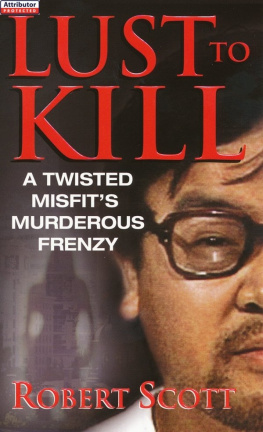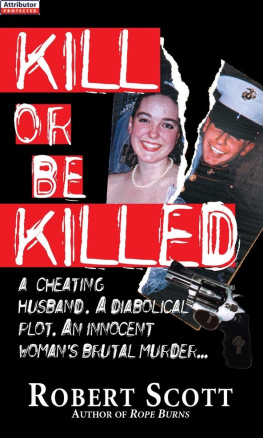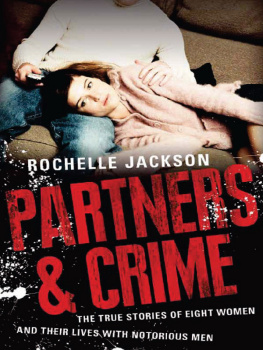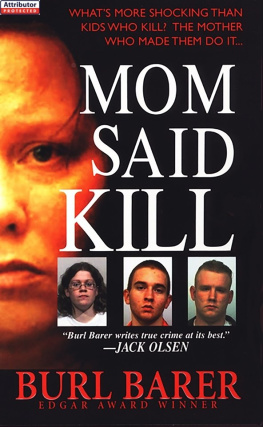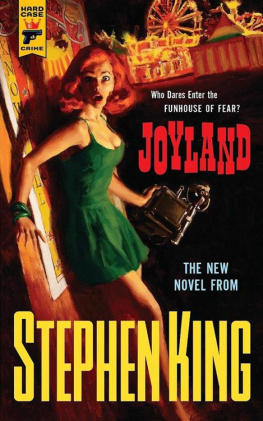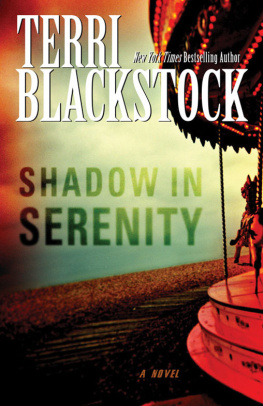CARNYKILL
byRobert Edmond Alter
Copyright1966 by Robert Edmond Alter
Allrights reserved under International and Pan-American CopyrightConventions. Published in the United States by Vintage Books, adivision of Random House, Inc., New York, and simultaneously inCanada by Random House of Canada Limited, Toronto. Originallypublished by Fawcett Publications, Inc. in 1966.
FirstVintage Crime/Black Lizard Edition, March 1993
ISBN0-679-74443-6
ToPat Stadley
Itwas one of those tourist traps that have turned the coast of Floridainto a glittering facade. They hide the naked sight of the hundredsof thousands of voracious cash registers behind the tinsel. That waythe innocent tourists won't be stampeded into running for cover infear for their wallets.
Thisplace was on the outskirts, on the tidelands, where acreage is cheap.It was a big, bristling, brawling take-off on the Disneyland idea outin Southern Cal. You might almost call it a steal.
Itwas owned and operated by an old carny man named Robert Cochrane, andhe was a pretty canny Irishman. If Disney had a Jungle Ride, Cochranehad a Swamp Ride. The Swiss Family Robinson Tree House at Disneylandbecame the Tarzan House at Neverland. That was the name of the trap.Neverland. Remember Peter Pan's fun-andgames island?
Likemost of those places that are designed for the tourist who wandersaround with money falling out of his pockets, it looked fine on top,impressive. Then you start scratching the surface and the dirt youfind under your fingernails is the same grime you'll find in anyclipjoint.
That'swhy I felt at home.
Theyhad a regular old fashioned carnival attraction tucked behind amonstrosity called Dracula's Castle-- where all kinds of wired spookssprang at you with earsplitting screams and where your girl's skirtwas blown up around her ears so all the sailors and pimply-facedhighschool dropouts could gawk at her panties. I made for it like ahoming pigeon.
Butsomething was wrong. It was like I'd walked into a familiar room andfound that somebody had moved a couple pieces of furniture out ofplace.
Theyhad the illusion show and the shooting gallery and the fat lady andthe tattooed man and the stripshow. Everything was there but it wasout of tune. The stripshow barker for example. He was as noisy and asflashy as he should be but he wasn't trying to turn his tip with thatair of insistent urgency you usually expect to find in a sideshow. Heseemed to be making a joke of it.
ThenI got it. It was all a joke, a part of the facade. The carnyattraction was only there for atmosphere. So Ma could turn to Pa andsay, "Why it's just like a regular sideshow, ain't it, Elmo?"Just good wholesome fun. Something else Cochrane had learned from Mr.Disney.
Asoldier and two girls and a man and wife with their two girls, andthen two girls who didn't seem to belong to anybody, were all gangedaround the shooting gallery and the soldier was making an embarrassedsap of himself by missing all the little white rabbits as they glidedby on their pivots.
Oneof the soldier's girls turned and looked at me--that sort ofunder-and-around look that's been handed down from girl to girl forGod knows how many thousands of years--and she had on a sweater thatmust have belonged to her little sister, it was that tight, and shemight have been all of sixteen.
Idecided to make the soldier look even better.
"Stepaside, folks," I said in my barker voice. "Let the man seethe rabbit'
Theop behind the counter had the kind of mute, predatory face thatbelonged in a shooting gallery. He gave me a quick flat look andhanded me a twentytwo in exchange for my quarter.
Thesoldier didn't think much of me. He said so with his eyes. I grinnedat him. Then I winked at the girl on his left. The one with thesweater that wouldn't stop.
Ilooked at the twentytwo and it looked all right. Then I bapped at thefirst little rabbit and turned him aboutf ace on his pivot. It seemedto be an honest rifle. When the rabbit slid out of his burrow again Iwent to work on him and kept him turning right-left, right-left untilthe magazine was empty.
Ihanded the rifle back to the op.
"Wheredo I find The Man?" I asked.
Hiseyes drifted to the left as though he were thinking about somethingelse--anything, including reaching for the billy he probably keptunder the counter.
"Somethingwrong?" he asked quietly.
"Nobeef," I told him. "Need a job."
"Carny?"
"Yeah."I named a couple of outfits.
"Spiel?"
"Um.And sleight of hand. The usual."
Hiseyes flicked at me again. Then he raised himself against the counterand called over our heads to a girl who was passing through the outercrowd.
"Billie!'Mere, huh?"
Thisgirl wasn't sixteen. She wasn't wearing a sweater. She looked assharp as a New York City model. She had floss candy hair that madeyou hungry. She stopped and looked toward us inquiringly, then walkedour way, her highheels clicking rhythmically on the cement.
That'swhen the soldier decided to show his girls just who was as tough as ahorseshoe around there.
"Youwink at her, buddy?" He meant the sweater girl.
"No,"I said.
Hecame a little closer and managed to give the movement a touch ofswagger.
"Yeahbut I seen you," he said.
"Thenwhy ask me about it--if you sawed me?"
"Listen,buddy," he said.
Ididn't want to fight him. There was no point in it. I was pretty sureI could take him, the way a fighter can sometimes tell with hisopponent the first moment he comes in against him. There's no profitin proving something to yourself that you already know.
Isaid, "Let's forget about it," and I turned to face thegirl with the cottoncandy hair.
Shewas looking at my face and her eyes slid over my right shoulder andwidened a little. I guess the soldier had decided to exhibit somemuscle about then, because I heard the shooting gallery op say,"Ixnay, soldier. Or I'll have three guards on you before you cansay Jesus."
Thesoldier said something about my mother's marital status and gatheredup his girls and left. I wasn't paying any attention. I was lookingat the girl called Billie.
Youmeet a girl like this, who looked as if she had just stepped out ofthe center-spread of _Playboy_ magazine with her clothes on, and youcan damn near feel your lousy fiftytwo-dollar suit grow wrinkles andyou wish to God you had shaved later in the day instead of the firstthing in the morning.
"Hewants to see Rob. A job. Take him, huh?" The shooting gallery opfinished his telegram message and this Billie looked at me again andsaid, "Sure."
Isaid thanks to the shooting gallery op and Billie and I walked offtogether.
Oneof the things I liked about her is that she _didn't_ use thatwouldn't-you-like-to-lay-me look that's been handed down forthousands of years. When she looked at me it was straight on. Itwasn't cold or to hell with you, buster. It was impersonal and it washonest.
"Billie,"I said. "That's a perfect name for a prostitute."
"What'sthat crack supposed to mean?" A little fire came into her eyes.They were gold-flecked. It was still daylight. That's how I couldtell the color of her eyes.
"Noinference meant," I said. "That's just the way your namestruck me. If I were going to write a book and I wanted a whore init, I'd call her Billie."
Shesmiled. "Too stereotyped. Too obvious. I'd fool everyone andcall her an old-fashioned name. Like Emily."
Ididn't tell her I'd once known a whore named Emily. She hadn't beenold-fashioned though.
Thebarker on the illusion show bally platform was an adenoidal-lookingman who used his adenoma-voice as part of his stock in trade. He wasspieling to a group of marks about the spider lady.
"Shescrabbles, she climbs, she spins a web."
ThenI looked at him again. He was looking over his marks at me. I didn'tsay anything or make a sign. I kept on walking with Billie. But shehad noticed.
Next page

